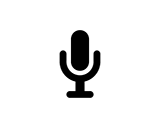Media Highlights
Media Highlights include current, general interest media coverage of BBS students, faculty, staff and leadership and their achievements. Archives of previous articles back to 2017 are also available.
Tulane Scientists Uncover New Pain-Signaling Switch
Nov 20, 2025
This study gets to the core of how synaptic plasticity works — how connections between neurons evolve. It has very broad implications for neuroscience, especially in understanding how pain and learning share similar molecular mechanisms. — Dr. Theodore Price, professor of neuroscience at the School of Behavioral and Brain Sciences.
Accelerating Social Impact Through BrainHealthy Competition
Oct 30, 2025
On September 29, 2025, the Ramona Jones Friends of BrainHealth Luncheon took scientific innovation to a new level, while celebrating the 97th birthday of founding BrainHealth Advisory Board Member Ramona Jones.
Globally Renowned Sleep Expert to Join Center for BrainHealth and UT Dallas
Sep 17, 2025
“Center for BrainHealth is pioneering a radical shift – from treating brain disease to cultivating brain health. That philosophy resonates deeply with my own vision: that sleep is not a passive state, but a powerful tool for enhancing cognition, emotional resilience, longevity and creativity.” — Dr. Matthew Walker.
Callier’s 2025 Listening Camp Had Campers Rising To New Heights With Sounds Of Delight
Sep 10, 2025
From Monday, July 28, to Friday, August 1, 2025, the annual Callier Listening Camp was in high gear. The camp provides speech-language therapy through an assortment of activities like rock wall climbing, arts and crafts, games and music for youngsters whose hearing differences have been improved thanks to technology like cochlear implants.
Timely Topic: Four for the Fourth—Safety Amid Celebration
June 24, 2025
Dr. Jane Wigginton, chief medical officer at the Texas Biomedical Device Center, provides safety tips for avoiding an ER visit on Independence Day.
How UT Dallas Researchers Are Helping Spinal Injury Patients Reclaim Their Lives
June 11, 2025
“It’s not exciting to relearn how to pick up a cup or put in an earring, so we give them that same little zap to the vagus nerve that releases those same chemicals. It lays down that pathway so it gets easier and easier.” — Dr. Jane Wiggington, MD, chief medical officer at the Texas Biomedical Device Center at UT Dallas.
UTD Scientists Solve 100-Year-Old Mystery Behind Diabetic Nerve Damage
May 21, 2025
“By studying the chemicals released by the different cells inside a Nageotte nodule, it might be possible to identify targets for drugs that stop whatever is causing pain signaling, whether it’s inflammation or some other process causing damage.” — Dr. Theodore Price, professor of neuroscience at the School of Behavioral and Brain Sciences.
UT Dallas Alum Dr. Aaron Dotson Reflects on How Passion for Music Shaped His Career
Apr 18, 2025
“My goal in life is to recruit as many people as possible to go into medicine, specifically ophthalmology,” he says. “I don’t want anything in return except for the texts, phone calls and emails saying, ‘Aaron, I made it.’ That’s what makes me happy.” — Aaron Dotson BS’15, neuroscience graduate.
UTD Unveils ‘Brain Recharge Station.’ How Might It Help Students?
Feb 26, 2025
At the unveiling, experts discussed how different colors and lighting conditions can influence mood and cognitive function, offering practical advice for optimizing home and workspaces.
Chronic Pain Researcher Provides Better Opportunities For Students
Jan, 2025
My research isn’t just focused on what causes pain, but rather it’s to help individuals who experience all levels of pain find a better fit with the drugs that can help them. A lot of the drugs people use either don’t work well or may work too well, which can lead to a dependency or tolerance. Trying to understand those mechanisms is what my team and I do. — Dr. Michael Burton, associate professor at the School of Behavioral and Brain Sciences.
A New, Non-Opioid Pain Drug Is Here. Getting It to Patients Could Be Agony.
Jan 31, 2025
Accidental overdoses involving an opioid remain high. Nearly 82,000 people in the U.S. died that way in 2022. Almost 15,000 of those deaths involved a prescription opioid. — Dr. Theodore Price, professor of neuroscience at the School of Behavioral and Brain Sciences.
Finding Your Voice: Understanding Spasmodic Dysphonia
Jan 27, 2025
“Sometimes people with spasmodic dysphonia, they have a sensory trick, where they can put their fingers on a certain place on their face or neck, and the symptoms are relieved, and why this happens we don’t know.” — Dr. Saul Frankford, professor in the Department of Speech, Language, and Hearing at the School of Behavioral and Brain Sciences.















